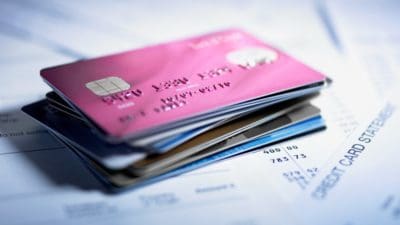With Canada comprising roughly 4% of the global stock market, the case for investing outside our borders is much stronger than it would be for American investors, who can get exposure to about half the world’s market cap strictly through U.S. stocks. Add the fact that many of those will be U.S.-based global multinationals, and an American is arguably getting a good dose of global exposure just by staying in the home market.
Not so in Canada, where the domestic market is concentrated in just three sectors of the Canadian economy: energy stocks, materials, and financials. There’s also a feeling among Canadian investors that for all the above reasons, the U.S. should be the first port of call for non-Canadian stock exposure. (I recall a long discussion forum thread once titled “The U.S. is the only market worth investing in.”)
Why?
Arguably no other country’s security markets have the rule of law and securities protection that America possesses. But once you leave the comfort of the North American market and perhaps a few major European centers—the U.K. and Germany, for instance—the risks go up. Just take a look at the bubble in the China market.
Yes, you can take a globally diversified approach through exchange-traded funds (ETFs) or mutual funds that have a global equity mandate, but if you prefer to invest in individual stocks that conform to U.S. accounting standards, you might want to investigate American Depositary Receipts (ADRs).
Wikipedia defines ADRs as negotiable securities that represent securities of a non-U.S. company that trades in the U.S. financial markets. ADRs are listed on the NYSE, Amex, Nasdaq, and over the counter. They tend to be large, well-known companies with a global footprint.
Examples from my own portfolio include the ADRs of Japan-based Toyota Motor Corp. (NYSE: TM), Netherland-based Unilever plc (NYSE: UL), and UK-based Diageo plc (NYSE: DEO). All of these are denominated in and pay dividends in U.S. dollars. As Wikipedia points out, they simplify investing in foreign securities by having the depositary bank “manage all custody, currency, and local tax issues.”
By the way, if you’re a fan of the PBS TV show Mr. Selfridge you’ll find it of interest that the first ADR was introduced by J.P. Morgan in 1927 for the British retailer Selfridges on the New York Curb Exchange, which was the precursor to the American Stock Exchange.
ADRs, explained
An ADR can represent a single share of a foreign security but it can also represent a fraction of a share or multiple shares. Whichever it is, the price will track proportionately that of the foreign security in its home market.
While I’ve never experienced it personally, ADR programs can be subject to possible termination and delisting, which may occur during reorganizations or mergers. This should be no more traumatic for the investor than with regular shares undergoing similar events. You’ll be notified 30 days in advance, after which you could surrender the ADRs and take delivery of the foreign securities represented by the ADR. Alternatively, you can tender the shares for cash.
There are several reasons why an American investor might want to use ADRs, but the biggest is that trading costs tend to be lower with ADRs than if you bought the equivalent security in its home market. Also, you do not have to pay capital gains taxes in the country of origin—just U.S. taxes.
Minor pitfalls
Like any investment, there can be minor disadvantages. There may be some delay in forwarding of regulatory documents like proxies, and there may be extra fees in certain countries. For example, in the UK, ADRs attract a 1.5% stamp duty reserve tax; there should be offsetting tax credits for most investors in this situation.
Finally, there is foreign exchange risk: while the ADR is in U.S. dollars, the underlying investment will be subject to fluctuations in the foreign currency. And, of course, a Canadian owning an ADR will also be exposed to fluctuations in the U.S. and Canadian exchange rate.







